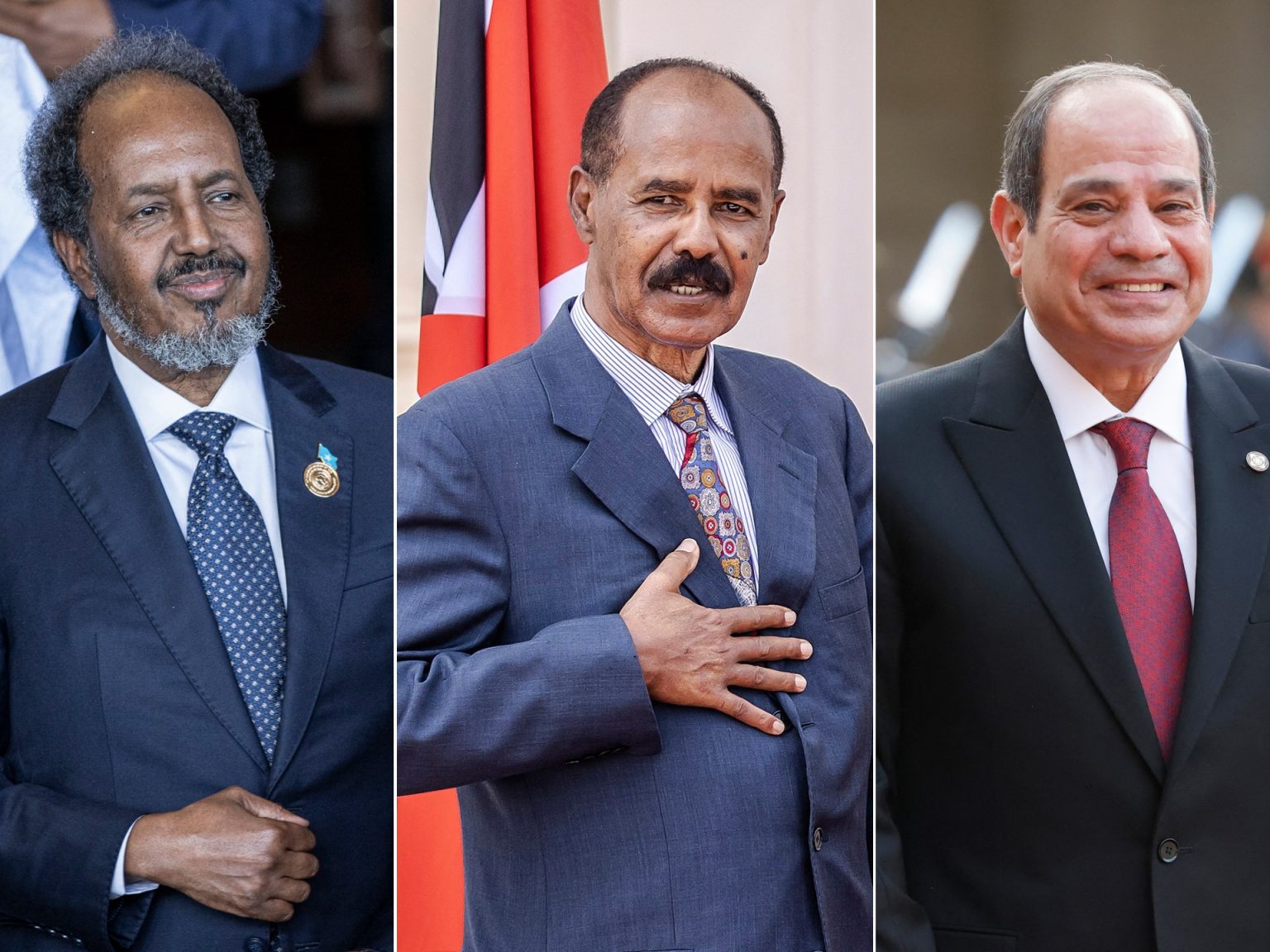The leaders of Somalia, Eritrea, and Egypt came together in Asmara to discuss improving regional stability in the face of heightened tensions in the Horn of Africa. The summit was called by Eritrean President Isaias Afwerki and included Egyptian President Abdel Fattah al-Sisi and Somalia’s Hassan Sheikh Mohamud. They agreed to enhance cooperation and respect each other’s sovereignty, independence, and territorial integrity. The leaders also emphasized the need to combat interference in regional affairs, work together for stability, and create an environment for joint development.
The focus of the summit was on the security situation in Somalia, where the army is currently fighting against the al-Shabab armed group. The leaders agreed to deepen cooperation to address terrorism, protect borders, and maintain territorial integrity. This agreement could potentially unsettle Ethiopia, which has troops in Somalia fighting al Qaeda-linked groups. Relations between Ethiopia and Somalia have been strained over plans for a port in the breakaway region of Somaliland, which Ethiopia opposes. Despite this, Ethiopian Foreign Ministry spokesperson Nebiat Getachew described the relationship with Eritrea as peaceful and characterized by good neighborliness and friendship.
Somalia’s response to Ethiopia’s plans included signing a major military deal with Egypt in August, with Cairo committing troops for a new African Union mission against al-Shabab. Egypt and Ethiopia have long-standing disputes, particularly over Ethiopia’s construction of a hydroelectric dam on the Nile River. Eritrea has also had conflicts with Ethiopia despite backing Ethiopian government forces in the recent war against Tigrayan forces. Analysts suggest that Eritrea’s exclusion from peace talks between Addis Ababa and the Tigray People’s Liberation Front may have contributed to tensions between the two countries.’
The leaders at the summit also highlighted the need to confront interference in regional affairs and coordinate efforts for stability. The three-way agreement aims to protect the sovereignty of each country while fostering a conducive environment for development. The focus on combating terrorism, securing borders, and maintaining territorial integrity reflects the urgent need for security in the region. The leaders’ commitment to cooperation and respect for each other’s sovereignty is a positive step towards enhancing regional stability and security.
The security agreement among the three leaders signals a united front against terrorist threats in the region and a commitment to working together to address shared challenges. By deepening cooperation and coordination, the countries aim to strengthen their ability to confront terrorism, protect their borders, and maintain stability. The leaders’ emphasis on the importance of joint efforts for regional security and development sets a positive tone for future collaboration and partnership. Despite existing tensions and disputes in the region, the summit provides an opportunity for dialogue, cooperation, and mutual respect among the countries involved.
Overall, the three-way summit in Asmara represents a significant step towards enhancing regional security and stability in the Horn of Africa. The leaders’ agreement to bolster ties, combat terrorism, and protect each other’s sovereignty demonstrates a shared commitment to peace and security in the region. By addressing common challenges and working together for the greater good, the leaders have laid the foundation for a more secure and prosperous future in the Horn of Africa. Despite differences and disputes among the countries involved, the summit offers hope for increased cooperation, coordination, and understanding among nations in the region.













